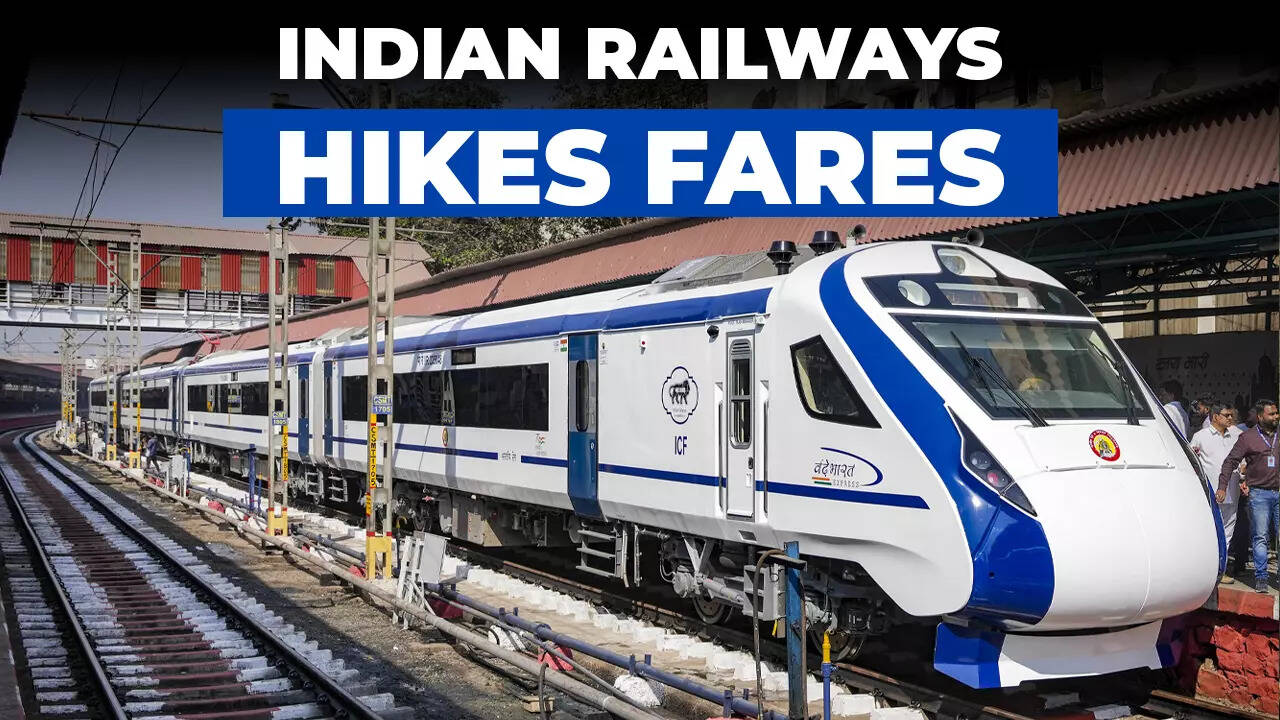Beginning July 1, 2025, Indian Railways will implement a marginal fare revision for long-distance train services across the country, marking the first nationwide increase in ticket prices in five years. The decision, officially notified by the Ministry of Railways, comes amid efforts to improve financial sustainability, rationalise fare structures, and modernise the country’s vast passenger rail network.
According to senior officials from the Ministry, the updated fare structure was derived from the latest Passenger Fare Table developed by the Indian Railway Conference Association (IRCA). The revised tariffs apply only to tickets booked on or after July 1. Tickets already issued for future journeys will not be affected, ensuring clarity and fairness in implementation. The revision excludes suburban services and season tickets—two lifelines for millions of daily commuters in metropolitan regions such as Mumbai, Kolkata, and Chennai. Officials clarified that passengers travelling within suburban corridors or using monthly and quarterly season passes will continue to pay the current fares.
The fare adjustment, though minor, introduces fractional increases across various classes and distances, especially for long-haul journeys. For non-air-conditioned categories in non-suburban services, the increase ranges from half a paisa to one paisa per kilometre, depending on the travel class. For second-class travel up to 500 kilometres, fares remain untouched, but journeys exceeding that threshold will see minimal increases—ranging from ₹5 to ₹15, depending on the distance bracket. Sleeper class and first-class passengers in non-AC trains will face a 0.5 paisa hike per kilometre. In mail and express trains, second-class, sleeper, and first-class tickets will be charged an additional 1 paisa per kilometre.
More noticeable are the increases for air-conditioned classes. Chair cars, three-tier, two-tier, and executive class coaches in express, mail, and premium trains—including Vande Bharat, Tejas, Rajdhani, Shatabdi, and Duronto—will see an upward revision of two paise per kilometre. Officials justified the hike by citing the increasing costs of operations, energy, maintenance, and infrastructure modernisation. A senior railway board official said the incremental revision would help bridge the widening gap between passenger service costs and fare revenue, without burdening the majority of short-distance or low-income passengers.
Indian Railways, which subsidises nearly 50% of its passenger operations, has long walked a tightrope between social obligations and financial sustainability. The last comprehensive fare revision was undertaken in 2019. Since then, inflation, fuel costs, and the growing need to invest in faster and more energy-efficient trains have added pressure on the national transporter’s bottom line. Transport economists familiar with railway policy welcomed the decision, stating that a minimal increase spread across a vast user base would help improve services without significantly affecting affordability. They also noted that the retained exemptions for suburban and short-distance routes would shield lower-income commuters from cost increases.
Importantly, the revised fare policy maintains status quo on ancillary charges such as reservation fees, superfast surcharges, GST, and other supplementary levies. The rounding-off practices for fares also remain unchanged, preventing potential inconsistencies in ticket pricing. The update applies uniformly to all classes across both regular and premium services, reinforcing the government’s push toward a simplified and transparent pricing structure. This includes special trains and newer categories such as the Amrit Bharat and Yuva Express, along with coaches like Anubhuti and AC Vistadome.
Ticketing systems including PRS (Passenger Reservation System), UTS (Unreserved Ticketing System), and manual counters have been updated to reflect the new pricing. A top railway official noted that these backend adjustments had been rolled out smoothly to avoid confusion among passengers and agents. The timing of the fare hike has also drawn attention, coming just ahead of the Ganpati and festive travel season when long-distance train bookings typically peak. While officials have downplayed the impact on demand, some passengers and advocacy groups have raised concerns about accessibility, particularly for AC travel classes that already see fluctuating dynamic pricing.
A senior transport analyst said that while fare increases are inevitable in a growing economy, it is essential to balance cost recovery with inclusivity. “Railways in India are a public good. The long-term goal must be to improve reliability and service quality while keeping it within reach of the common traveller,” the analyst said. Railway planners have also hinted at broader reforms in fare computation, possibly integrating environmental performance and energy source into future pricing models. As India moves toward net-zero emissions by 2070, electrification of rail corridors and increased use of renewable power will likely influence operational costs, which may be reflected in pricing strategies over the next decade.
For now, the July 1 fare revision remains modest but symbolic—signalling Indian Railways’ cautious yet necessary step toward balancing public service with economic viability. As the railways continue to modernise rolling stock, increase speeds, and introduce semi-high-speed trains, financial prudence will remain a core pillar of its future roadmap. Despite the fare increase, India’s passenger rail network remains among the most affordable in the world, carrying nearly 23 million people daily. With the current policy, the government has attempted to strike a pragmatic balance—allowing essential service delivery to continue while preparing the railways for its next phase of evolution.
Also Read : Mumbai Konkan Rail Ticket Prices Rise Amid Soaring Demand Before Festivities


